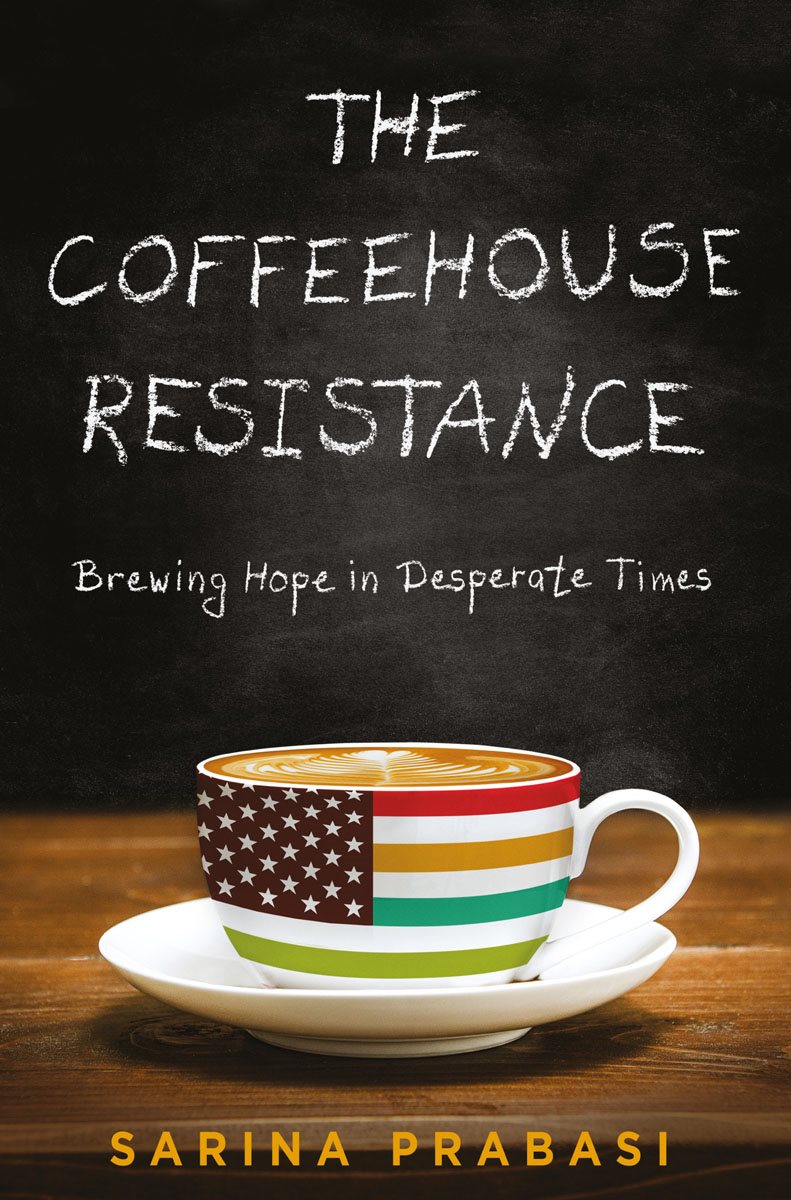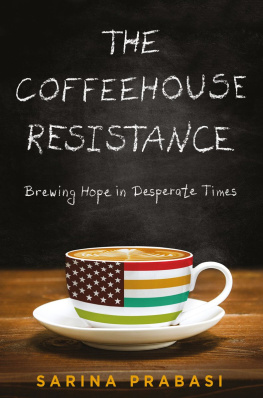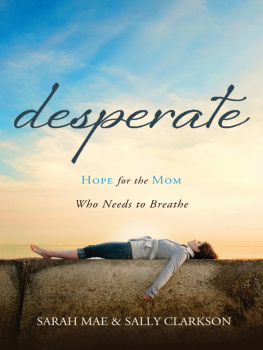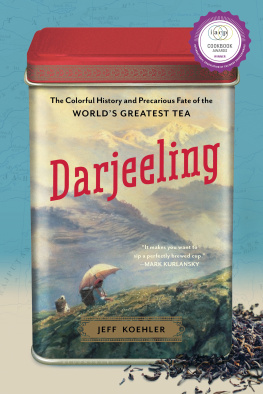


Copyright 2019 Sarina Prabasi
All rights reserved. No part of this book may be reproduced in any form or by any means, electronic or mechanical, including photocopying, recording, or by any information storage and retrieval system, without permission in writing from the publisher.
This is a work of creative nonfiction. I have written about events as I remember them. While all the stories in this book are true, some names and identifying details have been changed to protect the privacy of people involved.
Printed in the United States
10 9 8 7 6 5 4 3 2 1
Green Writers Press is a Vermont-based publisher whose mission is to spread a message of hope and renewal through the words and images we publish. Throughout we will adhere to our commitment to preserving and protecting the natural resources of the earth. To that end, a percentage of our proceeds will be donated to environmental activist groups and for The Coffeehouse Resistance, a percentage from the sales of this book will go to Northern Manhattan Coalition for Immigrant Rights (NMCIR), a non-profit organization founded to educate, defend and protect the rights of immigrants. Green Writers Press gratefully acknowledges support from individual donors, friends, and readers to help support the environment and our publishing initiative.

Giving Voice to Writers & Artists Who Will Make the World a Better Place
Green Writers Press | Brattleboro, Vermont www.greenwriterspress.com
ISBN : 978-1-7328540-3-1
COVER DESIGN BY ASHA HOSSAIN DESIGN, LLC INTERIOR ILUSTRATIONS BY CELINE SCHMIDT

THE PAPER USED IN THIS PUBLICATION IS PRODUCED BY MILLS COMMITTED TO RESPONSIBLE AND SUSTAINABLE FORESTRY PRACTICES
To Elias, who makes everything possible.
CONTENTS


T HE DOORS SLIDE OPEN and we walk through them, leaving JFK Airport with our large suitcases and our eighteen-month-old daughter. We are enveloped by the heat and the heavy humidity of New York City in July. That night we spend in a hotel near the airport. It has been a long journey and we all need some rest before we start the process of finding the apartment and turning it into our new home. Elias, Juni, and I are flight and hotel room veterans. In her short life, our daughter has already been on four continents. So that first night, we are comfortably ensconced in the calming (to us) space of a nondescript mid-range hotel chain, with its neutral colors and art on the walls that Im sure were there, but that left no lasting impression. We sleep deeply.
When we get to the micro-neighborhood of Hudson Heights in Washington Heights, at the northern tip of Manhattan, it is at once familiar and new. Our taxi rolls up to an unfamiliar address and we are clumsy as we pay and struggle with our multiple bags and Juni in a baby carrier on my chest. We ring for the Super, who is holding keys to the apartment which we have never seen. We searched for it and found it online on Craigslist while we were still in Ethiopia. My friend Sarah has gone to visit the apartment, and confirmed to us that the pictures in the ad were indeed of the apartment she saw.
As soon as we enter the apartment, I am crushed by a feeling, perhaps what claustrophobia might feel like. Even completely empty, it is so small. The rooms, kitchen, and bathroom are all shiny and clean, but I feel like a giant in a dollhouse. It is more oppressively humid than outside, if that is even possible. I feel a pang that might lead to panic, and wonder if we have made a colossal mistake. How could we, all three of us, possibly live here? I look directly at Elias for the first time since getting out of the taxi, and I see my own false-brave expression mirrored back on my husbands face. Itll be fine. Well be fine, I say, not sure if Im trying to convince him or myself. I go to open the windows, but the humid stillness doesnt shift at all.
We have borrowed an air mattress, sheets, and a small table fan from my cousin. Juni senses our discomfort and is unusually fussy before falling asleep. At about nine at night, there is a knock on our door. The man at the door introduces himself as Ralph, our downstairs neighbor. He has heard that a couple with a baby has arrived from Africa and is now in the bare and empty apartment 5A. He has brought old towels and sheets to welcome us, he says, and hands them to me. Then he complains that he can hear the fan in our room and tells us we should know that the building is old, and sounds travel easily. I force the tight smile to stay on my face while we thank him. As soon as we close the door, I drop the pile of old towels and sheets. I wonder what were going to do with these old towels, with a downstairs neighbor who can hear our fan, with an active daughter in a dollhouse apartment, in a city of millions with no job, no real connections. For the first time since we decided to move, I feel a little afraid.
Beginnings


T HERE S AN IRONY IN THE FACT that I am writing a memoir. Or perhaps it makes perfect sense. I have a deep fear of forgetting. Ive had to let go of places, friends, family, over and over again. Ive been on the move since childhood; staying is more noteworthy than leaving. In this swirl of places and people, I worry about losing moments held dearly. A loosening of my ability to bring back the precise, sharp, heart-pounding exhilaration of the moment or the dull throbbing of an ache. Blurring faces and images, confusing who said what, and who did what first. Forgetting is the opposite of the peace of voluntarily letting go. Instead, forgetting feels like my most precious possessions being stolen, silently, while Im unaware. Moving so much means that I create and recreate home. Home is often a feeling rather than a place. I have a terrible memory for the things that I want to remember most.
My brother, on the other hand, remembers everything. He remembers what he couldnt possibly, because he was too young. Hell remember not only what we ate on that special night out as kids, but what the menu looked like and the conversation my parents had. He remembers the set of matchbox toy cars I gave him for his birthday, which I, five years older than him, dont remember.
I worry that I might have a memory disorder, though Ive met other people who have porous memories like mine. Other times Ive wondered whether this is a sign of something Ive repressed, some trauma so deep that I am still running away from it, not wanting to acknowledge it. But my forgetting isnt limited to childhood. I worry that the busier I get, the more I do, the faster the forgetting fairy works. Memories of the recent past seem more distant than they should.
Next page















